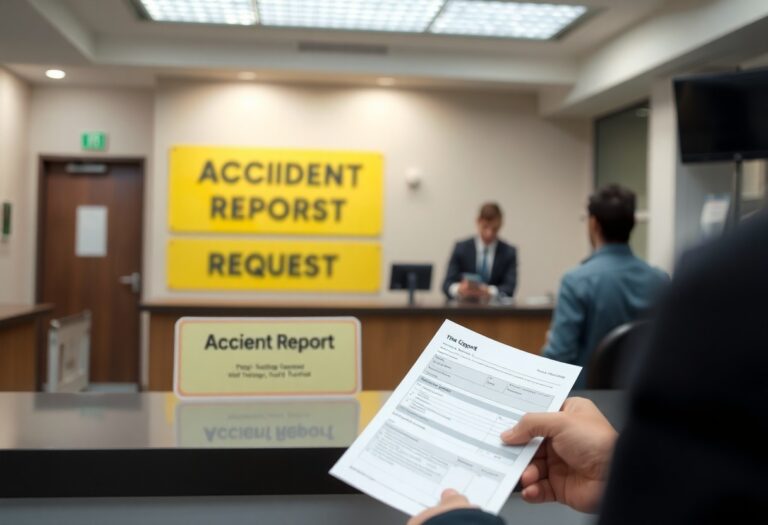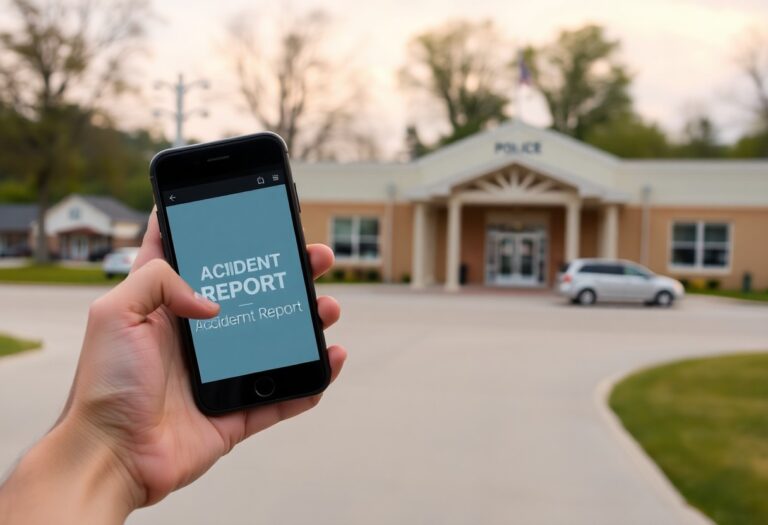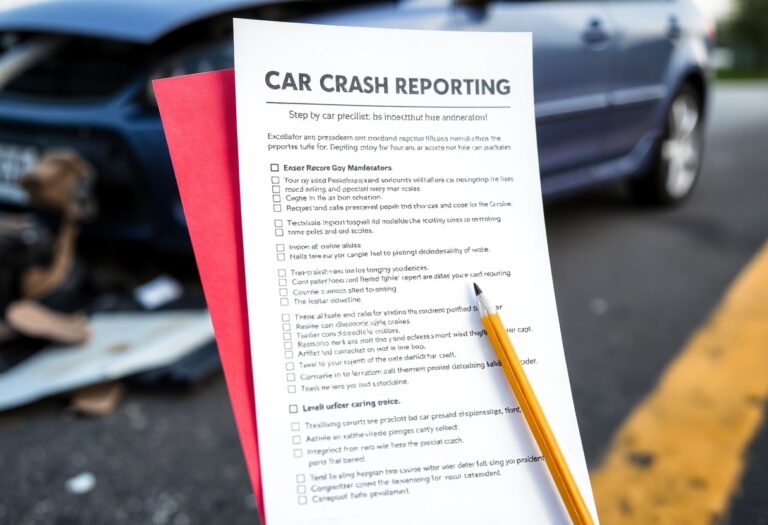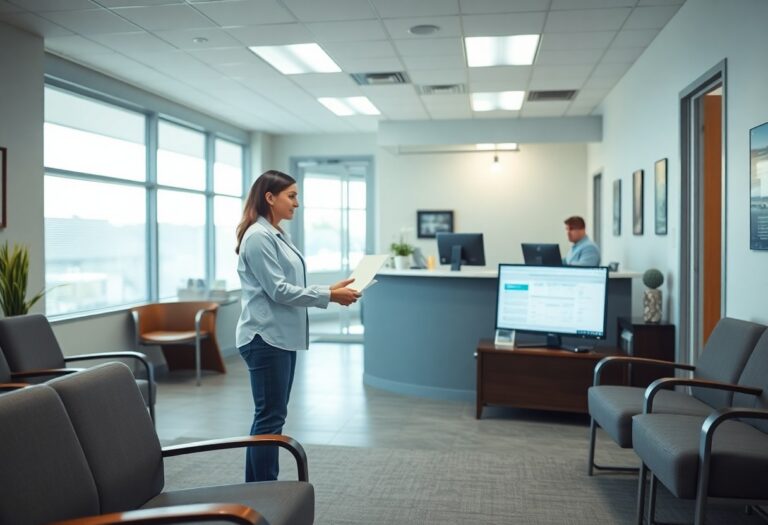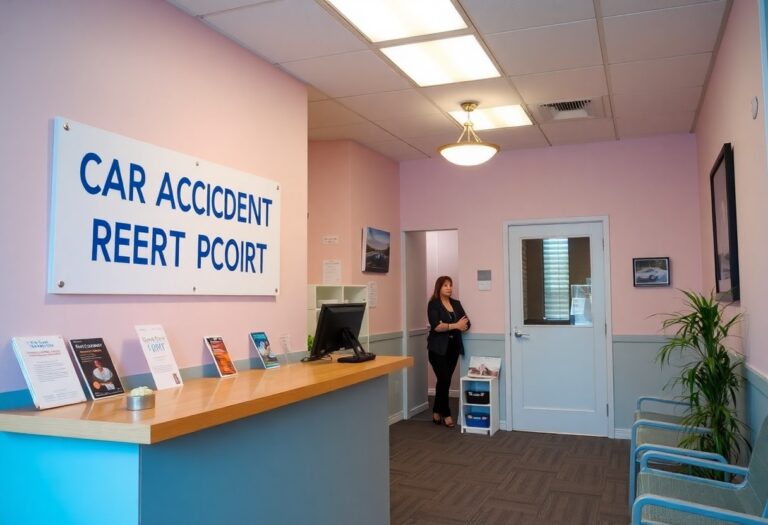Over numerous roads and highways, car accidents can happen at any time, leaving you feeling confused and overwhelmed. If you find yourself involved in a collision in Orange County, North Carolina, understanding how to obtain an accurate car accident report is imperative for your peace of mind and legal needs. This guide provides you with reliable information on navigating the report process, ensuring you can focus on recovery while protecting your rights. With the right support, you can confidently manage this challenging situation and move forward with clarity.
Navigating the Complexities of Car Accident Reporting
Car accident reporting can be overwhelming, especially with the various protocols involved in Orange County, North Carolina. Understanding how to navigate this process can make a significant difference in the outcomes of your case. From timelines to specific filing requirements, being informed about the steps you need to take is vital in ensuring that your rights are protected.
Understanding North Carolina’s Reporting Requirements
In North Carolina, you must report any car accident that results in injuries or property damage exceeding $1,000. This report should be filed with the local authorities within 24 hours. If injuries accompany the incident, notify your insurance company and file a report with the Department of Motor Vehicles (DMV) as well. Failing to meet these requirements could hinder your ability to recover damages later.
Key Documentation Needed After a Car Accident
Essential documentation includes the accident report, photos of the scene, medical reports, and witness statements. This information can strengthen your claim substantially. Gathering this documentation soon after the accident helps ensure all details are fresh in your mind and accurately recorded. Be proactive in collecting insurance information from all parties involved as well, as this will aid in the claims process significantly.
Aside from the accident report, it’s wise to take your own photographs of the scene, capturing damage to vehicles, the position of the cars post-collision, and any relevant road signs or signals. Obtain medical records detailing your injuries and treatment, along with receipts for any related expenses, to provide a clear picture of how the incident has impacted your life. Witness statements can also enhance your case by providing unbiased accounts of what occurred, adding credibility to your version of events. All these documents collectively form a robust case that supports your claims and paves the way for a smoother resolution process.
Essential Steps to Take Immediately Following an Accident
Following an accident, staying composed and taking the right steps can significantly influence your case. Begin by ensuring everyone’s safety before relocating vehicles, if possible. Focus on gathering evidence and vital information at the scene, and don’t overlook the importance of engaging law enforcement and medical professionals to document the incident thoroughly.
Collecting Evidence and Information at the Scene
Gathering evidence at the accident scene is vital for your case. Take clear, detailed photographs of vehicle damage, road conditions, and any visible injuries. Note the time, date, and exact location of the accident, while also exchanging contact information with other drivers and witnesses. This documentation will be crucial for your insurance claim and any potential legal actions.
Engaging Law Enforcement and Medical Professionals
Notify law enforcement promptly to create an official report of the accident. It’s equally important to seek medical attention, even if injuries seem minor at first. Medical professionals can help ensure that you receive appropriate treatment and help document the injuries related to the accident.
When engaging law enforcement, their involvement leads to an impartial report that captures crucial details about the accident. This report becomes a significant piece of evidence, outlining the facts, including witness statements and accident dynamics. Medical professionals not only provide immediate care but also generate medical records documenting your injuries, which can be pivotal for claims and legal proceedings. Failing to engage these professionals can lead to gaps in documentation that may harm your case later on.
Local Resources for Car Accident Report Assistance
In Orange County, accessing the right resources for car accident report assistance can streamline the process for those in need. Local law enforcement and insurance agencies are equipped to provide guidance and facilitate necessary steps following an accident. Whether you’re looking for police reports or trying to understand how to file a claim, these local entities can be your first point of contact.
Law Enforcement Agencies – Who to Contact
To obtain an accident report in Orange County, your primary contact is the local police department or sheriff’s office. These agencies will usually have a dedicated team that handles accident cases. It’s advisable to reach out to them promptly after an accident, as reports may be available within a few days. Don’t hesitate to inquire about specific information you may need regarding your incident.
Insurance Companies – Tips for Filing Claims
Filing a claim with your insurance company can be a straightforward process if you know what to do. Start by documenting every detail of the accident, including photographs and witness statements. Ensure you provide your insurer with a comprehensive account of the incident to avoid delays. Keep track of your claim number and any correspondence, as this will be crucial for follow-up discussions. The details you provide influence the timeline and outcome of your claim.
- document details of the accident
- contact your agent for guidance
- keep track of your claim number
- The key to a smooth claim process lies in thorough documentation.
While communicating with your insurance company, ensure you clarify your coverage and deductible limits. Take note of any specific documentation they require and keep copies for your records. Providing as much information upfront will help expedite your claim and minimize potential disputes. The goal is to ensure that the process is as seamless as possible for you.
- clarify coverage policies and requirements
- provide supporting documents like photos and police reports
- follow up regularly with your claims adjuster
- The right preparation can significantly enhance communication and outcomes with your insurer.
Leveraging Legal Support for Your Accident Report Needs
Engaging with a qualified attorney can significantly ease the process of navigating your car accident report needs. A skilled lawyer can help you understand the complexities of your case, ensuring that all necessary documentation is properly filed and deadlines are met. By utilizing their knowledge of local laws and regulations, you can rely on their expertise to review your accident report and identify any discrepancies or errors that may affect your claim. Their guidance can also be instrumental in negotiations with insurance companies, providing you with the support you need during this challenging time.
When to Consult an Attorney
Consulting an attorney becomes important when your accident involves significant injuries, complex liability issues, or disagreements with insurance companies. If you find that you’re unable to reach a fair settlement or if your case is more intricate than originally thought, it’s wise to seek legal counsel. An experienced attorney can help clarify your options, ensuring that you make informed decisions about your claim and subsequent actions.
How Legal Representation Can Enhance Your Claim
Legal representation can significantly enhance your claim by providing thorough documentation and negotiation strategies that boost your chances of receiving fair compensation. Attorneys understand the nuances of personal injury law and can effectively argue on your behalf, drawing upon their experience to navigate potential pitfalls that may arise throughout the process.
With a thorough investigation of the accident facts, your attorney can gather evidence, secure witness statements, and compile necessary medical records to establish a strong case. They are equipped to assess your damages accurately, accounting for factors such as medical expenses, lost wages, and pain and suffering. Insurance companies often employ tactics to minimize payouts; however, having skilled legal representation combats this by ensuring that negotiations are handled professionally, maximizing your compensation potential. In the end, securing legal support can be a game changer in attaining the results you deserve after an accident.
Common Pitfalls in Car Accident Reporting and Claims
In the aftermath of an accident, a few common pitfalls can hinder your ability to secure a fair settlement. Many individuals fail to collect adequate evidence, neglect to document injuries thoroughly, or provide misleading statements to insurance companies. Being unaware of these potential issues can lead to complications down the line and negatively impact your case’s outcome. Understanding these pitfalls ensures you’re better prepared to navigate the reporting and claims process effectively.
Mistakes that Can Compromise Your Case
Omitting details or altering the facts in your police report can severely compromise your case. For instance, neglecting to mention pre-existing conditions or inaccurately recalling the sequence of events may give the insurance adjusters grounds to dismiss or reduce your claim. Each piece of information impacts the perception of your case, so accuracy is vital.
Misunderstanding Liability and Fault
Confusion about liability and fault often leads to underestimating your claim’s value. Many people mistakenly assume that if they weren’t at fault, they are automatically guaranteed compensation, but this isn’t always the case. Liability can be more complex than it appears, involving multiple parties and contributory negligence statutes that might reduce your compensation.
Familiarizing yourself with how liability is assessed in accidents can significantly impact your success in claims. For instance, North Carolina’s contributory negligence law states that if you’re found to be even slightly at fault, you may be barred from receiving compensation. Understanding this nuance is critical, as it affects your strategy when collecting evidence and negotiating settlements. An experienced legal representative can help clarify these issues and advocate effectively for your interests, ensuring that the determination of fault is accurately represented in your case.
Final Words
Considering all points, when you find yourself needing assistance after a car accident in Orange County, North Carolina, you can depend on reliable resources to guide you through this challenging time. Utilizing local expertise in accident reporting, legal advice, and insurance claims can greatly ease your burden. It’s important to know that you don’t have to navigate this process alone; support is available to help protect your rights and ensure you receive the compensation you deserve.







